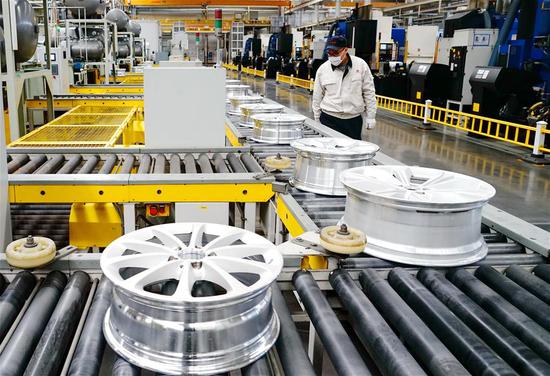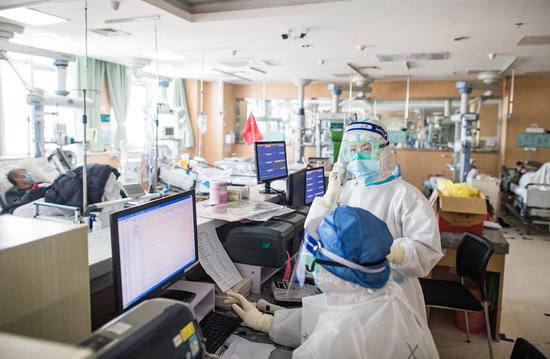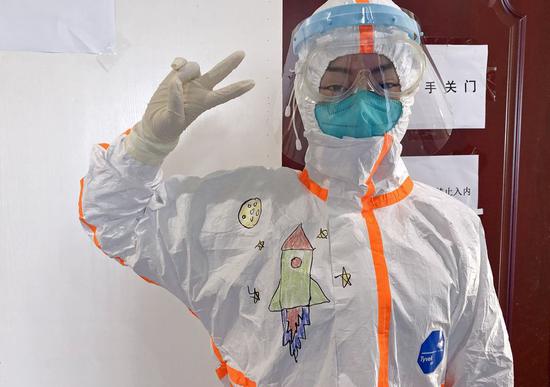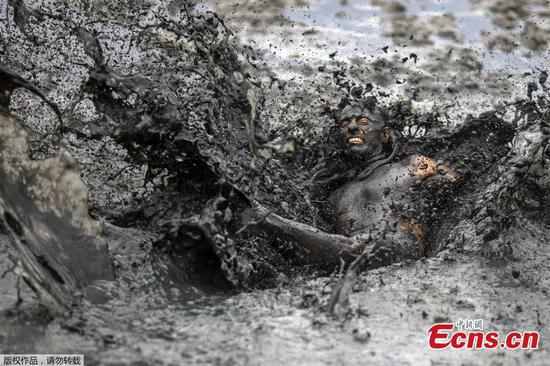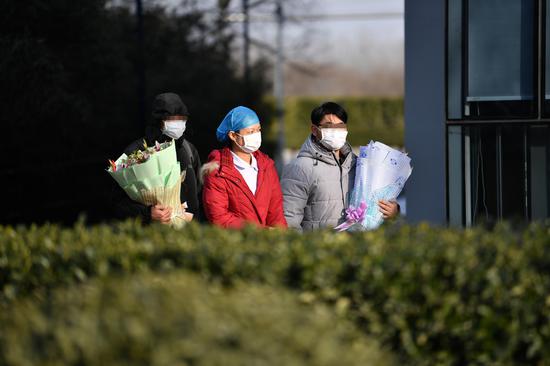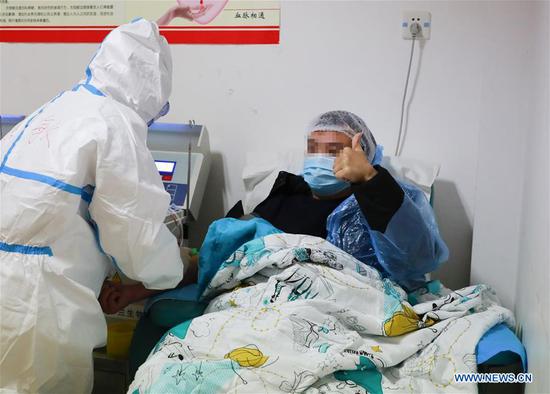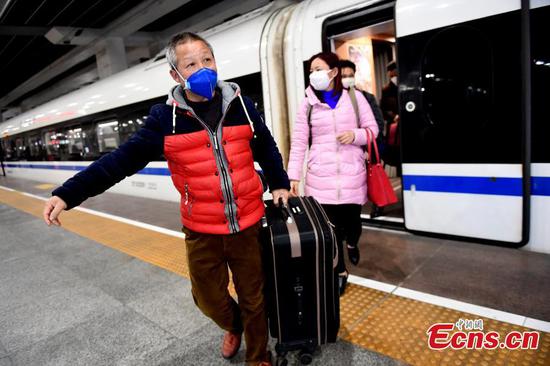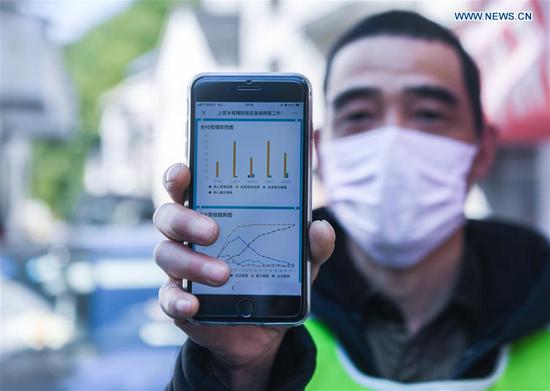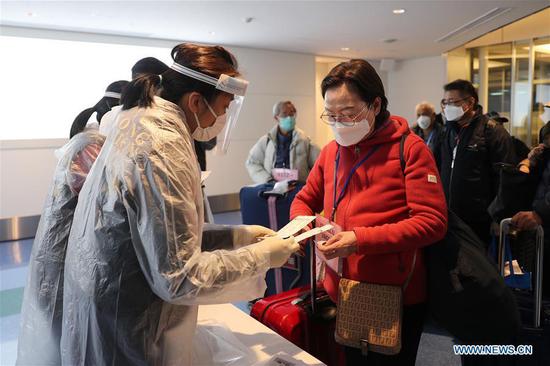The European Union is spending 232 million euros ($251 million) on efforts to stop the spread of the respiratory disease COVID-19.
Monday morning's announcement followed a difficult weekend in Europe, during which authorities restricted travel in some areas in the face of a dramatic hastening of the spread of the novel coronavirus and the COVID-19 disease it causes.
As it announced the extra funding, the European Commission said it was working "around the clock" to support EU member states in their fight to stop the outbreak becoming a pandemic.
Ursula von der Leyen, president of the European Commission, said the money will boost global preparedness, prevention, and containment of the virus.
"As cases continue to rise, public health is the number one priority," she said. "Whether it be boosting preparedness in Europe, in China, or elsewhere, the international community must work together. Europe is here to play a leading role."
The announcement of the new money followed Austria suspending train services on Sunday that link the nation with Italy. The move followed suspicions that two passengers who had traveled to the country by train from Italy had contracted the virus. They were later found to be virus-free and train services were resumed following a four-hour hiatus.
"We can give the all-clear," the Reuters news agency quoted Karl Nehammer, Austria's interior minister, as saying. But he added that Austria's coronavirus task force was considering border controls along the frontier with Italy following a spike in cases on the other side of the border, where only three were confirmed on Friday and more than 220 were infected by Monday. The infections in Italy had led to seven deaths, as of Monday afternoon.
As a result of the outbreak, the Italian government locked down several small towns in the northern regions of Lombardy and Veneto. In addition, many businesses and schools in the wider region closed their doors, as did some professional soccer teams, all in attempts to avoid people congregating in crowds. Museums and cinemas in the region have also been shuttered, along with cultural events, such as activities at nearby Milan's famous La Scala opera house.
Italy's leading news agency, Agenzia Nazionale Stampa Associata, said the deteriorating situation there put the country in the company of South Korea, Japan, and Iran as locations outside China where the virus may have gained a foothold.
The situation prompted China's embassy in Italy to issue a warning on Sunday, advising visiting Chinese people to enhance their awareness of epidemic prevention and control, and to abide by the health regulations issued by the Italian Ministry of Health and by other relevant regional governments.
The BBC reported on Monday that the outbreak had grown globally to such an extent that it was close to being declared a pandemic. The World Health Organization has previously declared outbreaks as pandemics when a virus has started spreading easily from person to person in multiple parts of the world.
As of Monday afternoon, more than 1,200 cases of the virus had been confirmed in around 30 countries and territories outside the Chinese mainland and there had been at least 23 deaths.
Paul Hunter, a professor of health protection at the University of East Anglia, told the BBC the growth in the number of cases outside China was "extremely concerning".
"The tipping point, after which (we lose) our ability to prevent a global pandemic, seems a lot closer after the past 24 hours," he said on Monday.
Tedros Adhanom Ghebreyesus, the director-general of the World Health Organization, also said on Monday that the window of opportunity to contain the virus was "narrowing".
The Financial Times noted the acceleration of the spread of the virus had hit global stock markets.
Italian stocks led declines in Europe, with the country's FTSE Mib index dropping 4.5 percent on Monday. The Europe-wide Stoxx 600 tumbled 3.5 percent, and the United Kingdom's FTSE 100 also slid, by almost 4 percent.
Marketwatch reported United States stocks tumbled in early trading on Monday, with the Dow Jones Industrial Average down by 997 points at its session low.
"Markets (are) likely to show extreme caution in the face of global spread of the coronavirus," said Robert Carnell, chief Asia-Pacific economist at ING. "This is no longer solely an Asia issue."
In addition to the sudden accelerated spread of the virus in Italy, other nations outside the Chinese mainland have joined the ranks of countries that now have the virus. Afghanistan, Bahrain, Iraq, and Kuwait all reported their first novel coronavirus cases on Monday. All said the virus appears to have entered their populations via someone with links to Iran, which has become a virus hotspot. They join a growing list of countries and territories that are dealing with outbreaks, including South Korea, which reported 231 cases on Monday, taking its total to more than 830, which is the largest number of confirmed cases outside China. Eight people with the disease have died in South Korea. Many people testing positive for the virus there had been members of a religious group that was located near the southeastern city of Daegu. Many others have links to Daenam Hospital in Cheongdo.
Iran, meanwhile, said on Sunday it had 61 confirmed cases, of which 12 resulted in fatalities, making it the nation with the most fatalities outside China.
Afghanistan, Iraq, Kuwait, Saudi Arabia, Turkey, and Pakistan have all now imposed travel and immigration restrictions on Iran.











